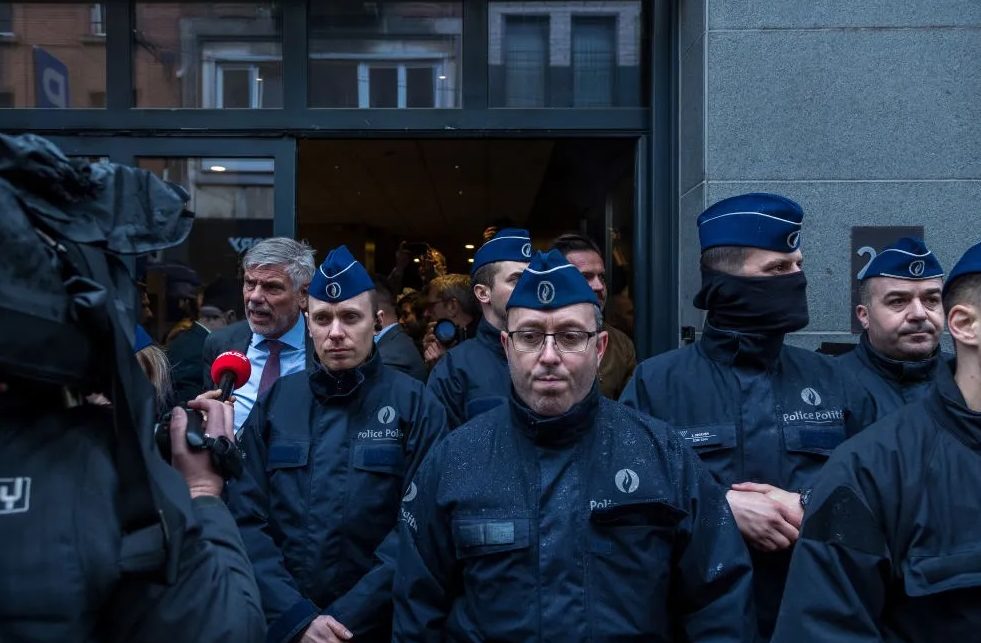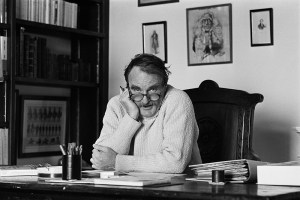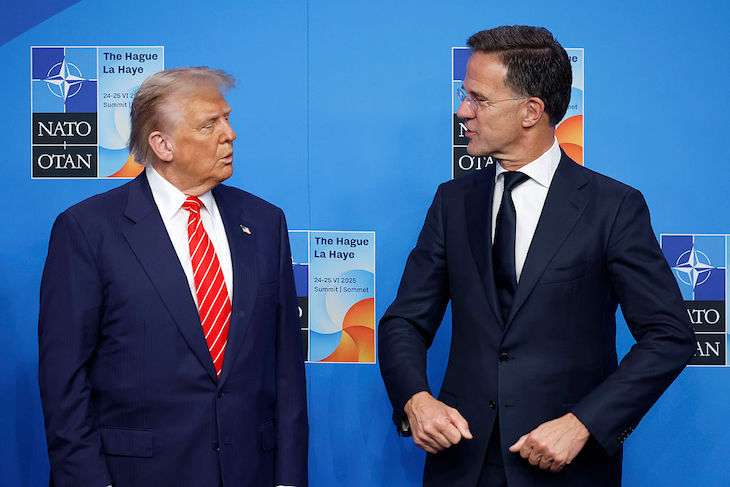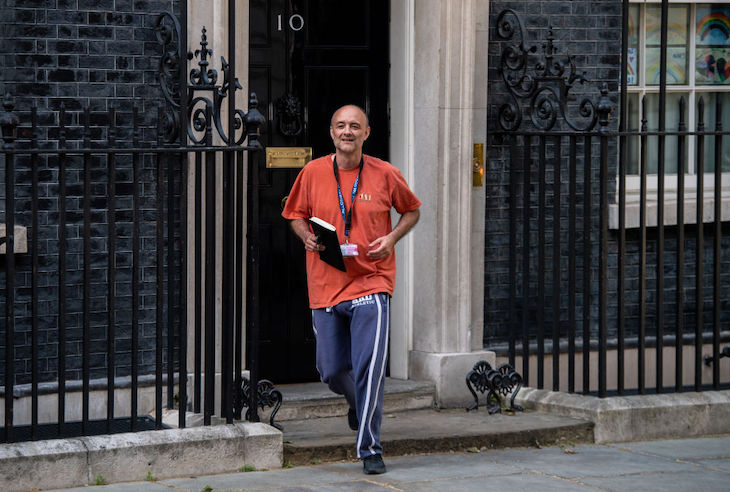Brussels
A familiar refrain at any National Conservatism Conference is that leftist elites are censorious, authoritarian and intolerant of free speech. On Tuesday, it seemed like this was proven correct, after the Brussels police were ordered to shut down the conference in an outrageous assault on freedom of speech.
It has been a surreal day so far, but that shouldn’t distract from the fact that this is an outrageous, authoritarian assault on democratic freedom by the Brussels authorities
When the conference started at the Claridge hotel in the morning, it was already on its third venue, after two others were forced to cancel at the behest of Brussels’s socialist mayor, Philippe Close.
The conference was opened by Yoram Hazony, the austere Israeli-American conservative scholar and the founder of the Edmund Burke Foundation that puts NatCon on. He gave a hurried and slightly late opening address, with tinkly disco music playing that no one had remembered to turn off.
Still, the morning began as normally as could be expected given the circumstances. It was appropriate enough that the event began with the Polish member of European Parliament and political theorist, Ryszard Legutko: a dissident under communism who was forced to hand out his work as samizdat. Legutko has long argued that an illiberal Brussels elite has a similar iron fist to the one used by the communist regime. British pollster and academic Matthew Goodwin then made a strong speech about the Conservative Party’s betrayal of Brexit.
Before long it was the turn of Nigel Farage, the keynote speaker and guest everyone had been waiting for. “I knew I wouldn’t be welcome back in Brussels,” he said, but the attempts to shut the event down so far were “outrageous.” He then told the audience that not only had the two previous venues been forced to cancel, but as he spoke, the mayor was on the phone to this hotel owner, a Tunisian man who believed in free speech, to pressure him to shut down the event. The hotel owner’s wife had been threatened, and catering wasn’t able to enter the building. Outside, police had told the organizers that “The authorities decided to shut the event due to possibility of public disorder.”
Farage didn’t hold back. “We are up against an evil ideology. We are up against a new form of communism.” The former MEP strode confidently around the stage and spoke without notes, even offering up occasional Donald Trump impressions. We learnt that an original posse of three police officers had been sent to shut down the event, but they had decided against tussling with Farage on stage, and so had retreated outside instead.
British Member of Parliament Suella Braverman, in a hasty change of schedule, spoke immediately afterwards. Speaking over an understandably disquieted audience, given the police presence outside, Braverman launched a brutal broadside against Rishi Sunak over the European Convention on Human Rights and its ever-expanding “rights radicalism.” Despite the ECHR’s “motherhood and apple-pie rhetoric,” she said, it consistently “favors the rights of the criminal minority above the law-abiding majority.” Britain should leave the jurisdiction of the Strasbourg Court, she said, which “fundamentally undermines” parliamentary democracy.
While Braverman has criticized the ECHR before, she has never before blamed the prime minister for the continued subordination to this foreign court so directly. “All it would take is for the prime minister to send a letter,” she said, to trigger Article 58, beginning the process to leave — the mere “stroke of a pen.” She added that if necessary, things could then be tidied up with an Act of Parliament. Braverman suggested the prime minister should act now to leave the ECHR, rather than making it a manifesto pledge, which would set back the cause for a generation if the Conservatives lose the election.
The audience’s attention may have been elsewhere, but the conference committee was unwilling to be deterred. Speakers plowed on through the lunch break, holding forth on the roots of western culture and the Spenglerian incommunicability of civilization. With no proper catering, most people were struggling to fill up on canapés and listening with at best half an ear. Many were flitting in and out of the lobby to take pictures of the ranks of Brussels police that had by then assembled outside.
Instead of marching in and taking over the stage, now the police seemed to want to shut down the event incrementally. Some later speakers had already been prevented from entering. Éric Zemmour, the French right-wing populist firebrand, was scheduled as a keynote speaker in the afternoon but denied entry to the venue by police. Now, anyone who left would not be allowed back in — with those inside unable to eat.
It has been a surreal day so far, but that shouldn’t distract from the fact that this is an outrageous, authoritarian assault on democratic freedom by the Brussels authorities. Ahead of the European Parliament elections in June, voters should not forget how elites at the heart of Europe sent dozens of police to muzzle a political meeting.
Quite rightly, too, the NatCons won’t let this stop them. The organizers are challenging the legal order to shut them down. And they have pledged that the second day of the conference will start as usual tomorrow morning, at an as yet unknown location.
This article was originally published on The Spectator’s UK website.


























Leave a Reply